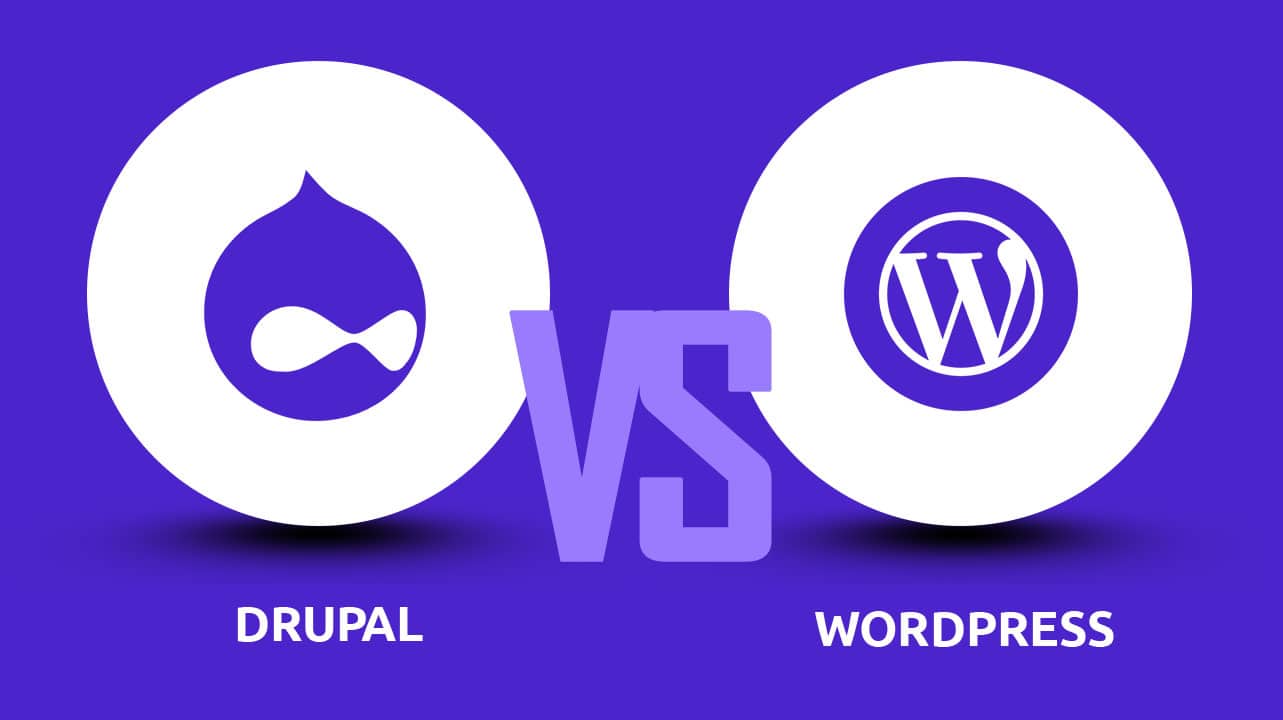WordPress - what is it?

WordPress is an open-source and free content management system (CMS) based on PHP and MySQL. Over 60 million websites are powered by this platform, making it the most popular website platform in the world. Since its release in 2003, WordPress has evolved into a robust and flexible platform for creating and managing websites of all sizes, ranging from personal blogs to large e-commerce websites.
Through its thousands of themes and plugins, WordPress offers a wide range of customization options. Furthermore, the platform is supported by a large community of users, developers, and contributors who regularly release new features, bug fixes, and updates. Additionally, WordPress is SEO-friendly, making it a great choice for businesses and individuals seeking to improve their search engine ranking.
In addition to its website creation capabilities, WordPress also offers features such as social media integration, email marketing, and e-commerce functionalities through its plugins. It also offers a range of tools for managing and organizing content, such as posts, pages, categories, and tags.
Overall, WordPress is a versatile and flexible platform that makes it easy for individuals and businesses to create and manage a professional-looking website. Its ease of use, customization options, and widespread community support make it an excellent choice for anyone looking to build a website.
Joomla - what is it?

Joomla is a free and open-source Content Management System (CMS) that is used to create websites and web applications. In 2005, it was released for the first time, and has since become one of the most popular CMSs in the world, used by millions of websites and organizations. For storing website content, Joomla uses a MySQL database written in PHP. With its user-friendly interface, customizable templates, and a variety of extensions and plugins, it provides a wide range of features. As well as being highly scalable, Joomla can be used to build websites of any size, from small personal blogs to large enterprise websites. It is known for its flexibility and ease of use, making it a popular choice for both novice and experienced website developers.
Additionally, Joomla has a strong community of users and developers who contribute to its ongoing development and support, ensuring that it remains a reliable and up-to-date platform.
How do WordPress and Joomla compare?

WordPress vs Joomla are two widely popular open-source content management systems (CMS) used for creating websites. WordPress is a great choice for beginners due to its ease of use and user-friendly interface. It is commonly used for creating blogs, portfolios, and small-to-medium-sized websites. With several plugins and themes available, users have a wide range of customization options. WordPress is optimized for search engines, resulting in websites having a higher likelihood of appearing higher in search engine results.
Joomla, on the other hand, offers advanced features such as multiple language support, news feeds, and e-commerce capabilities. It is perfect for creating complex websites like online magazines, corporate websites, and e-commerce stores. However, Joomla has a steeper learning curve than WordPress, requiring more technical expertise to install and maintain.
In terms of security, both platforms have their advantages and disadvantages. Due to its large user base, WordPress is a popular target for hackers. Despite this, security updates are released regularly to address potential vulnerabilities. Joomla has a more robust security feature set but requires regular maintenance to remain secure.
Caching plugins and content delivery networks can optimize both WordPress and Joomla for performance and speed. While Joomla is heavier and faster than WordPress, WordPress has a slight performance advantage.
Ultimately, the choice between WordPress vs Joomla depends on the specific needs of your website. WordPress is an excellent option for creating simple blogs or small websites, while Joomla is suitable for creating complex websites with advanced features.
WordPress vs. Joomla: Pros and Cons

1. WordPress Pros:
- User-friendly – WordPress is known for its easy-to-use interface, making it ideal for beginners who want to build their own website without prior technical knowledge.
- Customization – WordPress offers a wide range of customization options with thousands of themes and plugins available. This means users can make their website look and function the way they want.
- SEO-friendly – WordPress is built with search engines in mind, making it easy to optimize a website for search engines.
- Community – WordPress has a large and active community of users, making it easy to find support and resources for building and managing a website.
- Scalability – WordPress can be used for small personal blogs or large enterprise-level websites, making it scalable for any size of business.
2. WordPress Cons:
- Security – As WordPress is the most popular CMS, it’s also a common target for hackers. Users must keep their websites and plugins up-to-date to prevent security breaches.
- Performance – WordPress can slow down due to heavy plugins or themes, so it’s important to choose lightweight options and optimize the website’s performance.
- Updates – WordPress releases regular updates which can sometimes cause compatibility issues with themes and plugins, leading to unexpected downtime.
3. Joomla Pros:
- User-friendly – Joomla also offers a user-friendly interface, making it easy for beginners to create and manage a website.
- Customization – Joomla has a range of templates and extensions available for customization, allowing users to make their website look and function the way they want.
- Advanced features – Joomla offers advanced features such as e-commerce integration, social networking, and multilingual support, making it a good choice for complex websites.
- Scalability – Joomla can also handle small personal websites or large enterprise-level websites, making it scalable for any size of business.
4. Joomla Cons:
- Steep learning curve – Joomla has a steeper learning curve compared to WordPress, making it less accessible to beginners.
- Limited plugins – Joomla has fewer plugins available compared to WordPress, making it harder to find the right extension for a specific need.
- Performance – Joomla can also slow down due to heavy extensions or templates, and users may need to optimize their website’s performance to prevent this.
Which is the best CMS for making a professional website?

When it comes to building professional websites, both WordPress and Joomla are popular choices as content management systems. Choosing between WordPress vs Joomla largely depends on your project’s specific needs and requirements.
WordPress is a user-friendly platform widely used for building blogs, portfolios, and e-commerce websites. Its vast community of developers has created numerous plugins and themes, making it easy to extend its functionality. Even without technical skills, WordPress is easy to use and SEO-friendly.
On the other hand, Joomla is a more robust platform that’s better suited for complex websites, especially those with multiple levels of user access or requiring advanced customizations. It has a steeper learning curve compared to WordPress, but it provides greater control over your website’s design and functionality.
Overall, WordPress is generally considered the better option for most professional websites due to its simplicity, flexibility, and extensive library of plugins and themes. However, if your website requires more complex functionality, Joomla may be a better choice. In conclusion, the choice between WordPress and Joomla ultimately depends on your website’s specific needs.
What makes WordPress better than Joomla?

- Ease of Use – WordPress’ user-friendly interface makes it easy to use, even for non-technical individuals. Joomla, on the other hand, has a steeper learning curve and requires more technical knowledge to use effectively.
- Flexibility – WordPress is highly flexible and can be used to create almost any type of website, from blogs to e-commerce sites to portfolios. Joomla is also flexible, but not to the same extent as WordPress.
- Themes and Plugins – WordPress provides an extensive library of free and paid themes and plugins, allowing users to customize and extend the functionality of their websites. Joomla also has a library of extensions, but it is not as extensive as WordPress.
- SEO – WordPress is optimized for search engines from the start and contains many SEO-friendly features, such as customizable permalinks and the ability to add meta tags. Joomla is not as SEO-friendly, but it can be made so with the use of third-party plugins.
- Support and Community – WordPress has a large community of users and developers, making it easy to find support and resources for troubleshooting and customizing the platform. Joomla also has a community of users and developers, but it is not as extensive as WordPress.
What are the key steps to migrate from Joomla to WordPress?

- Backup your Joomla site – Before you start the migration process, it’s crucial to back up your entire Joomla website, including its database, files, and images. This will ensure that you have a copy of your site in case something goes wrong during the migration process.
- Choose a suitable host – You need a web host that supports WordPress and has sufficient resources to handle the migration process. If you don’t have a web host yet, you can choose one of the recommended WordPress hosting providers.
- Install WordPress – Install a fresh copy of WordPress on your new host. You can use the famous 5-minute installation process, or use a one-click installer provided by your web host.
- Install a migration plugin – To simplify the migration process, you can use a plugin such as “All-in-One WP Migration” or “Duplicator.” These plugins will help you transfer your Joomla site to WordPress in a matter of minutes.
- Export your Joomla content – From the Joomla admin panel, go to Components > J2XML and export your Joomla site’s content to an XML file. This file will contain all the information needed to import your content into WordPress.
- Import your Joomla content – In WordPress, go to Tools > Import and select the “Joomla (j2xml)” option. Then upload the XML file you exported from Joomla. The plugin will then import your Joomla content into WordPress.
- Map your Joomla categories to WordPress categories – After importing your content, you’ll need to map your Joomla categories to WordPress categories. This will ensure that your posts are organized correctly in WordPress.
- Redirect your old URLs – After migrating your site to WordPress, you’ll need to set up redirects for your old Joomla URLs to ensure that your visitors can still access your site’s pages. You can use a plugin such as “Redirection” or “Safe Redirect Manager” to set up redirects.
- Test your site – After completing the migration process, thoroughly test your site to make sure that everything is working correctly. Check all your links, images, and pages to ensure that everything is properly imported and functioning as expected.
- Go live – Once you’re satisfied with the results, it’s time to go live with your new WordPress site. Update your domain name’s DNS settings to point to your new host and test your site again to make sure that everything is working correctly.
In brief, why do we need WordPress rather than Joomla?
Both WordPress and Joomla are popular content management systems, each with its own strengths and weaknesses. Here are some reasons why you might choose WordPress over Joomla:
- User-Friendliness – WordPress is known for its user-friendly interface, making it easy for users to manage and create content, even for those with little technical experience.
- Customization – WordPress has a vast library of themes and plugins that can be used to customize the look and functionality of a website. This makes it easier to add new features and improves the overall user experience.
- Search Engine Optimization (SEO) – WordPress is optimized for search engines out of the box and has many SEO plugins available that can further enhance your website’s visibility.
- Scalability – WordPress can easily handle a large volume of traffic and can be scaled up as a website grows.
- Security – WordPress is a highly secure platform and has a large community of developers working to constantly improve its security features.
- Support – WordPress has a large user community and a wealth of resources available, making it easy to find help and support when needed.
When it comes to Joomla vs WordPress, it’s important to recognize that Joomla does have some strengths, including its advanced content management capabilities. However, it’s also true that Joomla can be more complex to use and has a steeper learning curve than WordPress. Additionally, Joomla’s support and resources may not be as widely available as those for WordPress.
Ultimately, deciding between Joomla vs WordPress comes down to your individual needs and technical expertise. Both platforms have their advantages and drawbacks, and either can be a solid solution depending on the specific requirements of your website.
Final Thoughts
In my opinion, while both WordPress and Joomla have their strengths and weaknesses, WordPress is generally a better choice for most users. It has a larger community, more extensive plugin and theme options, easier usability, and better SEO capabilities. Joomla, on the other hand, has a steeper learning curve and is more suitable for larger and more complex websites. Ultimately, the choice between the two platforms depends on the specific needs and goals of the user. However, for most users, WordPress is the more flexible and user-friendly option.











